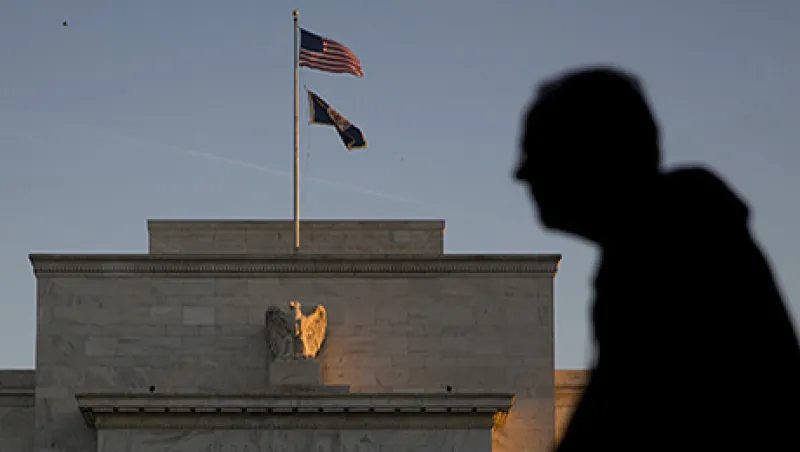All eyes will be on the Federal Reserve today in advance of tomorrow’s announcement from the Federal Open Market Committee. After months of speculation, there is still no clear consensus for timing of the inevitable rate hike, with analysts divided between this week, December and even March for the first tightening step. In early trading today, futures contracts for ten-year Treasury notes rose slightly as traders position themselves for what may be the first increase in the U.S. central bank’s benchmark rate in a decade.
Japan gets downgraded. Standard & Poor’s today cut the long-term credit rating for Japan’s sovereign debt by one level to A+. In the accompanying report, S&P analysts argued that the ongoing attempt to revive growth through a combination of structural reforms and quantitative easing is showing little signs of achieving the intended results.
U.S. CPI drops in August. Department of Labor data released today revealed that consumer prices fell in the U.S. in August for the first time since July as lower fuel costs brought the headline index down by 0.1 percent for the month. Core inflation, a measure excluding food and fuel costs, rose by 0.1 percent. The most recent comments from FOMC members suggest that policymakers continue to view current low inflation as a temporary situation, potentially negating the impact of today's data on the rate decision, due tomorrow.
FedEx lowers full year guidance. Today Memphis–based shipping company FedEx Corp. announced fiscal first-quarter results with earnings which, at $2.42 per share, were stronger than the same period last year but fell short of consensus analyst targets as the firm grapples with slackening global growth. The global delivery giant also guided full-year earnings per-share to a range of $10.40 to $10.90, down from a prior $10.60 to $11. Huge merger brewing. Today London–based SABMiller announced that it had been approached by Leuven, Belgium-based Anheuser-Busch InBev regarding a potential merger or the two companies. Both stocks surged on the news. If the firms combined, it would constitute the largest merger in brewing industry history and would cap off over $100 billion worth of acquisitions by Anheuser-Busch InBev in the last decade.
Another late rally for Chinese equities. In the final hour of trading, the Shanghai composite index shifted from negative territory to close up nearly 5 percent in a rush of buying analysts ascribed to more government intervention. As has been the case in recent sessions, volumes remained well-below recent averages.
Glencore sells new shares to raise cash. Yesterday Anglo-Swiss commodity giant Glencore Xstrata placed a secondary offering of $2.5 billion in shares at a discount of over 2 percent as the company continues to pare debt levels. CEO Ivan Glasenberg purchased shares in the offering to maintain his percentage of ownership in the firm.
Portfolio Perspective: The Case for a Shallow Course — Robert Tipp, Prudential Fixed Income
The case for an extremely shallow course for Fed-fund rate hikes — or no hikes at all — appears strong. In the U.S., growth is modest and inflation low. When has the Fed hiked rates while simultaneously hoping that both the rates of growth and inflation will rise? Although the unemployment rate has dropped into the Fed’s full employment range, can they be confident we are really at full employment in the face of other metrics suggesting plenty of excess capacity?
Despite the lack of clarity in the Fed’s game plan, the bond market is reasonably well braced. As a result, over the intermediate to long term, the U.S. bond market is still likely to outperform cash with the higher-yielding sectors probably outperforming by a wide margin. Furthermore, the uncertain backdrop continues to provide above-average opportunities to add value through active management.
Robert Tipp is chief investment strategist and a co-portfolio manager on the Prudential Total Return Bond Fund for Prudential Fixed Income in Newark, New Jersey.






